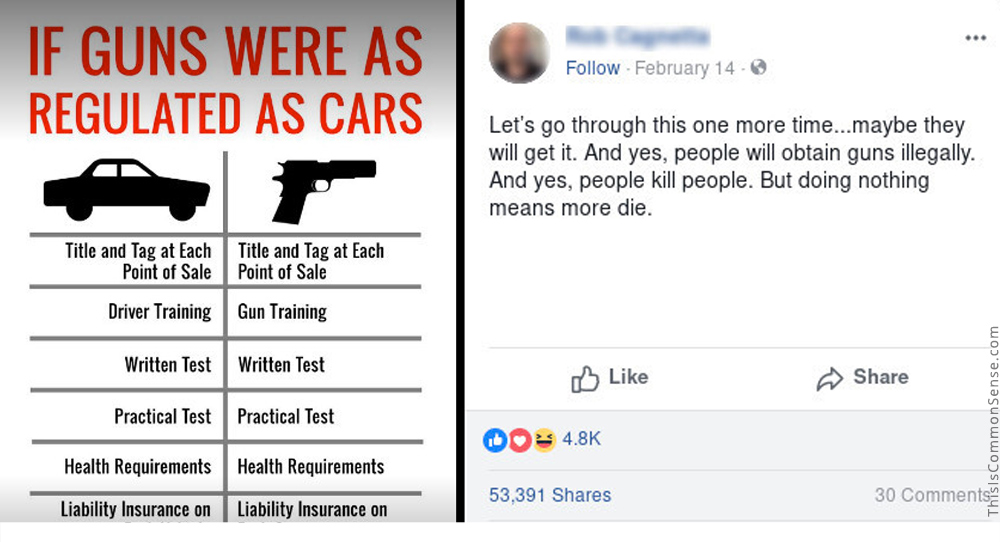A clever “meme” made the rounds earlier this year showing, in two columns, what it would be like were guns regulated like cars.
How reasonable that would be!
“Title and tag at each point of sale”; “Driver training”/“Gun training”; Liability insurance on each vehicle/gun”; etc. It seems sound, no?
No.
The memester failed to address a context: our car and driver regulations apply to vehicles and drivers on government-run roads. On your own property you can drive all sorts of vehicles, unregulated. And it is on their own property that most gun owners’ firearms stay most of the time.
So, treating “guns like cars” would put government deeper into our private affairs.*
The meme came into an economist’s view packaged under the slogan “doing nothing means more people die.” He saw problems. For example, “someone might propose that each person above the age of 10 years old be interned in a mental-health camp, until and unless experts appointed by the state certified that he or she was not a danger to society.”
Same logic — we cannot do nothing, can we?
Another economist dubbed the problem we have identified here as “a simplistic model of public policy.” Policy advocates tend to assume that if you change a policy we get only one effect. Not true.
A third economist (I’m going for a trifecta!) discovered that even adding safety features to cars comes at a cost in human life: feeling safer, drivers compensate . . . and it is non-drivers who suffer. More drivers hit more pedestrians.
Be cautious when you drive, sure. Be cautious when you shoot, of course.
But be cautious, especially, when you prescribe new laws.
This is Common Sense. I’m Paul Jacob.
* Not to mention that gun rights are specifically enshrined in the Constitution and vehicle rights . . . not so much.

